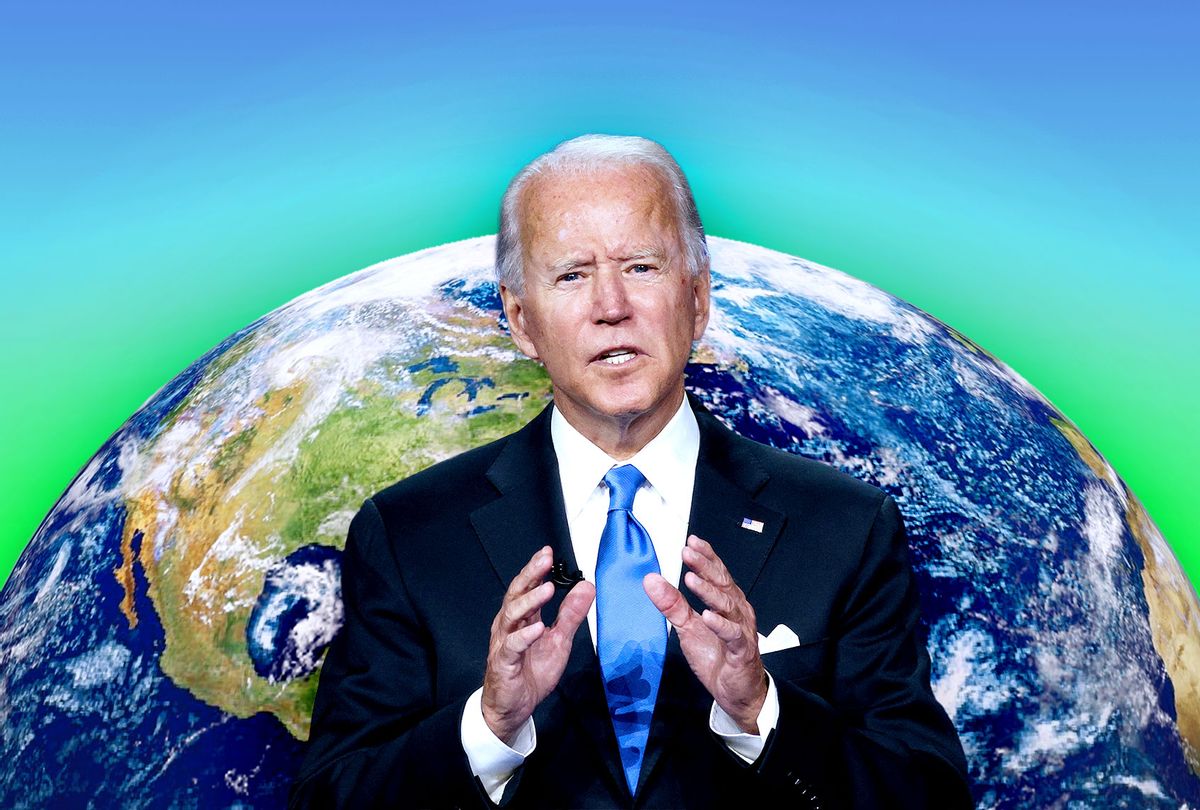Breakthrough: That's the best way to describe President Biden's Earth Day climate summit. Setting aside the Paris Climate Agreement, that was clearly the best week in history for climate progress, and the most important Earth Day since 1970.
The most unexpected good news came when Vladimir Putin, in the midst of Russia's mini-Cold War with the U.S., stepped forward to pledge to "significantly" decrease Russia's emissions. More important, Putin belled the cat on the urgency of methane, in advance of a UN report sounding precisely that alarm on Friday.
"The fate of our entire planet, the development prospects of each country, the well-being and quality of life of people largely depend on the success of these efforts," Putin commented of the methane challenge — to which Russia has been a major contributor, with leakage increasing 40% in 2020. Now, according to Putin, the problem can be profitably addressed clean by capturing methane leaking from wells and pipelines and turning it into petrochemicals. (An excellent venue for Ronald's Reagan's catchphrase: "Trust but verify." New satellite monitoring can hold Putin to his promise.)
Other nations got the big headlines for their 2030 emission targets; the U.S. promised to cut by 50%, the U.K. 63%, Japan 46% and Canada 40%, while the EU solidified its binding target of 51%. Major emitters India and China made less meaningful longer-term pledges, with China recognizing the need to cap and then curb coal, and India emphasizing the ambition of its renewable goals. South Korea pledged to phase out its role as one of the world's two biggest financiers of new coal projects (along with China). Brazil, however, ruined the goodwill value of its new 2050 zero-emission pledge by announcing cuts in spending on climate and environmental protection the very next day.
An unanticipated positive result of the world's focus on U.S. credibility after four years of Donald Trump was to shift global focus from gauzy 2050 targets to more accountable 2030 goals — which demand action on Biden's watch. A likely outcome of front-loading those 2030 targets to put pressure on Biden is that much of the uncertainty about major-emitter ambition, which otherwise might have been stowed up as bargaining chips for COP26 — the UN Climate Change Conference in Glasgow this November — has been resolved. That suggests that Glasgow will become even more the climate finance summit, because few of the G7 nations can plausibly come forward with more ambitious domestic goals than they have offered, but all of them can and should do more to help developing economies leapfrog to low-carbon development.
But what made Earth Day 2021 such a breakthrough was that nations were not the only major participants pressuring Biden. In the run-up to the Earth Day Summit, states representing almost half the U.S. vehicle market urged the Biden administration to require all new passenger vehicle to be electrified or otherwise zero-emission by 2035, while Washington state set a 2030 deadline for its own fleet. This clearly increased the odds that each of these states will individually adopt the 2035 deadline for its own market, something the auto industry has thus far resisted.
Then the private sector weighed in, as 400 major U.S. corporations jointly urged the Biden administration to offer a 50% emission cut as the 2030 national pledge — effectively creating expectations that each of them would support state and federal regulatory initiatives requiring them to provide their share of that 50% reduction. Most significantly exposed from this call for 50% were Ford and General Motors. Both of the giant automakers have remained silent as auto industry trade associations to which they belong have vigorously lobbied against federal and state efforts to adopt emission-reduction mandates that will clearly be required for the U.S. to meet Biden's goal of a 50% cut.
If Putin was the biggest surprise, the most significant individual moment was provided by United Mine Workers president Cecil Roberts, who released the union's new "Preserving Coal Country" plan at a press conference alongside West Virginia Sen. Joe Manchin. The UMW plan for the first time gives the union's imprimatur to a major emphasis on investment in clean energy as a priority for coal miners and West Virginia. Manchin, widely seen as the key to the Biden administration's chances of passing the American Jobs Plan, buttressed Roberts by saying, "As chairman of the Senate Energy and Natural Resources committee, ensuring all coal miners aren't left behind as America transitions to a cleaner energy future is one of my top priorities."
The lack of a low-carbon transition acceptable to the UMW has been a major hurdle to establishing a clear pathway to the full decarbonization of the American power sector. A goal of 100% clean electricity is at the heart of Biden's pledge. Virtually every model that achieves the Paris climate goal assumes 100% clean power. Now that a broad set of demands from the most affected community of workers — coal miners and their communities — is on the table, it's likely that the long-simmering conversation about a "just transition" will come rapidly to a rolling boil.
I'll be very surprised if the president's response to this call for clean energy for the coal belt doesn't generate some intense and potentially game-changing conversations. As Paul Krugman points out, restoring Appalachia's economy won't be easy, no matter what. But it will be hopeless if we keep postponing a serious effort and a serious commitment. Indeed, Appalachia will be the crucial test case for our overall ability to accelerate clean energy progress by intensifying the economic benefits for fossil-dependent and fossil-exposed communities.



Shares